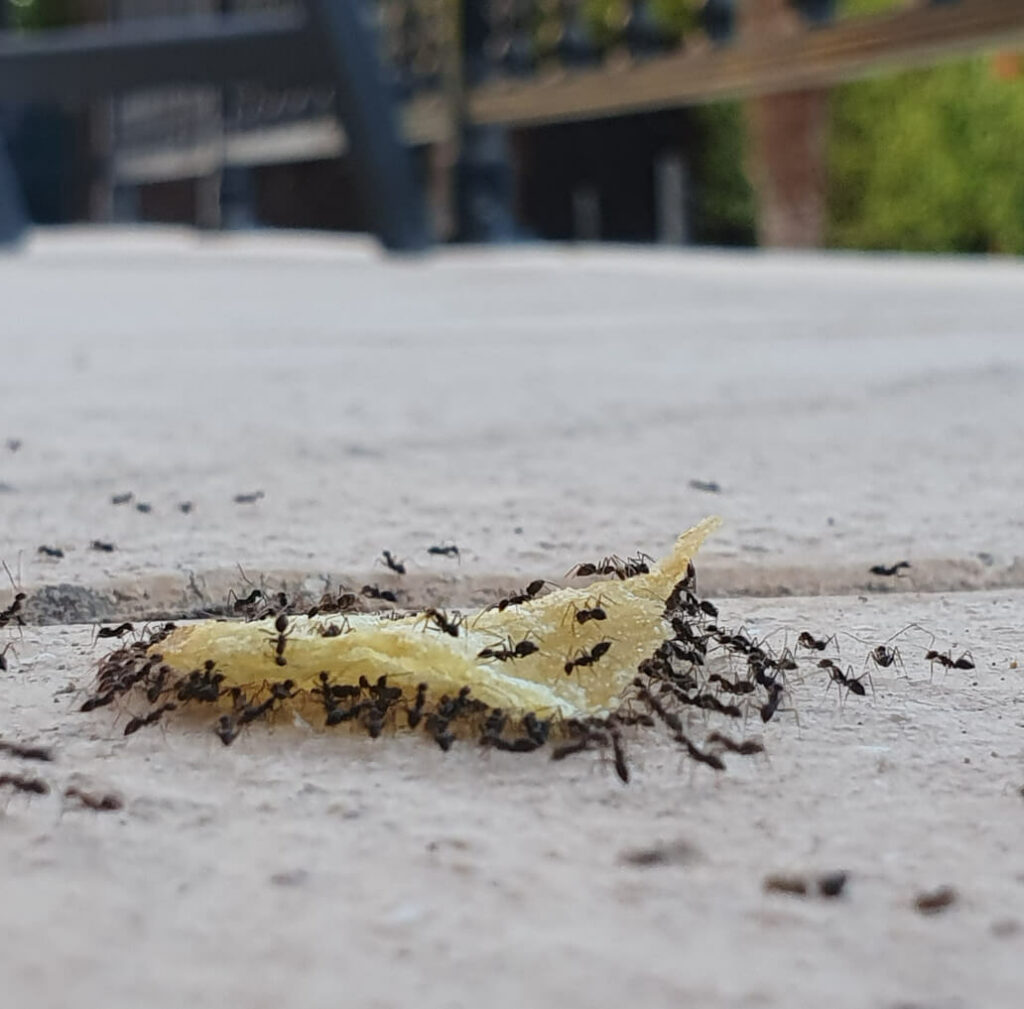Pavement Ants
Native to Europe, the pavement ant was introduced to the US in the 1700-1800’s when soil was used in the bottom of the ship to provide a heavy, sturdy base to the vessel. It is likely that the soil was removed and replaced when the ship docked in the United States. The pavement ant arrived in the United States via this route, and it’s been bothering citizens ever since.
General Information
Pavement ants are anywhere from 2.5 to 4mm in length and vary in color from dull brown to black. Along their thorax and abdomen are dark furrors or lines, a spiny thorax, and their last abdominal segment has a stinger. Although pavement ants rarely sting or bite, it can happen. The stings from ants can itch and irritate your skin. Pavement ants typically construct their colonies beneath rocks, buildings, homes, or sidewalk slabs. Winged reproductive ants swarm in the spring and the queen then lays her eggs in the dirt beneath the ground. Sugar, grease, sticky syrups, nectar, dead insects, and even small seeds are all favorites of these ants, which are consumed and stored in the nest.

Signs of Infestation
Pavement ants are a common household pest that typically enter homes through foundation cracks. Small piles of sand or debris can be found near the foundation, concrete slab, or sidewalk where the ants pushed back dirt as they dug tunnels into their nests. The presence of black swarms of pavement ants on your sidewalk or driveway is a sign that these ants are everywhere and could pose a significant threat if they enter your home. They have a very keen sense of smell and are drawn into your home by the smell of food or garbage. An ant releases a pheromone to alert their colony that food is nearby when they find crumbs or a garbage can that is easily accessible. Soon, thousands of ants will arrive to collect the spoils. Anyone who has experienced an infestation of ants knows that they don’t just stay in the kitchen; rather, they spread throughout the house, looking for food and water wherever they can.
Treatment
The treatment of pavement ants must be done carefully. Store bought ant control can be toxic or contain a lot of chemicals that are unsafe if used inappropriately. Since the average homeowner is not a pest technician, they are probably lacking a thorough knowledge of pesticide application techniques. This is why you need the expert approach of the Altus Pest Control technicians to help you with the complicated processes of fully eliminating pavement ants from your home. Our specialists use techniques that are safe for your family and pets, but are powerful and effective on ants. They also know how to attack the entire colony without causing the colony to scatter, thereby escalating the issue. Attempting DIY ant control frequently prolongs your suffering rather than resolves the issue. We’ve been doing this for a long time, so we know how to get rid of all ants in your home. Call us today for the best ant control around.
